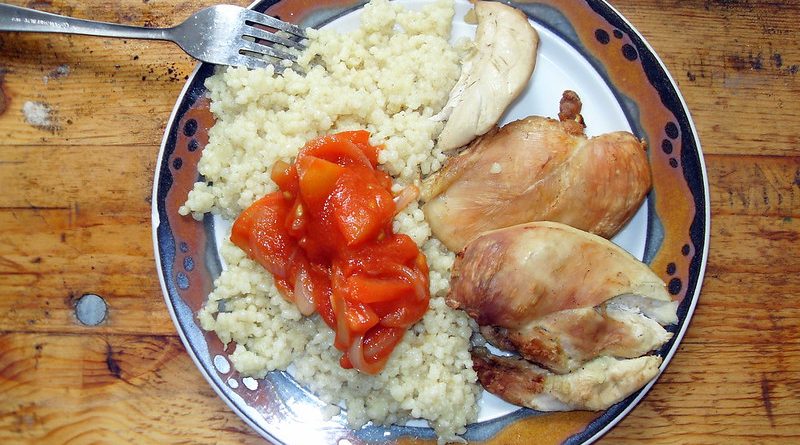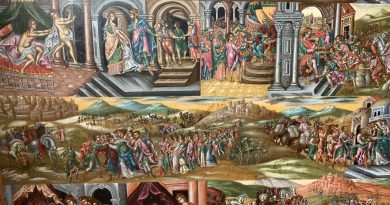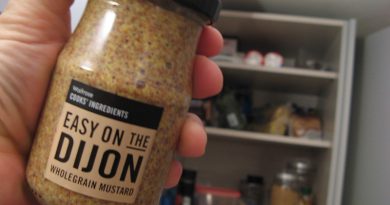The Food of Palestine
Palestinians are obsessed with food’ admits the chef and cookbook author, Sami Tamimi. If not for the strong sense of community inspired by the act of cooking and preparing a meal, then for the unique fecundity of the region’s soils. It is the land of ‘milk and honey’, a ‘garden of gods’ boasting an abundance of fresh fruit (figs and citrus), vegetables, as well as a vast marine culture.
What is interesting aside from the nutritional make-up of the soil here, is the historical influence of so many other countries over the cuisine. In her seminal cookbook Palestine on a Plate, Joudie Kalla cites references from Europe, Syria, Egypt, Turkey and Jordan. The resulting effect in the kitchen, is that of a total melting-pot. Nowadays, Palestinian territory is marked in official terms, as the areas occupied or controlled by the State of Israel; comprising the West Bank, East Jerusalem and the Gaza Strip.
The fight to establish a Palestinian food sovereignty: ‘the right of peoples to define their own food and agriculture’ — and by extension, a key component of their cultural identity, is ongoing.
What makes a Palestinian dish, truly Palestinian then, Kalla argues, is the special emphasis placed on the home. The role of the grandmother, mother in consolidating a recipe, based on the available ingredients within a specific region, and then passing these down through generations. Combined with an ambitious selection of spices and herbs—za’atar and sumac, blends of all spice and dukkah—this is the key to her honing a sense of ‘national’ cuisine. Keeping it within the confines of the family, avoids the sense of loss that inevitably comes from policies barring, for example, restrictions of Palestinian fisherman to the Gaza sea, foraging for herbs, or from marketing produce grown and harvested of a Palestinian hand, as ‘Israeli’ on the supermarket shelf.
The Palestinian Hosting Society, an art project founded by Jerusalem based artist, Mirna Bamieh (2017), is one example of this attempt to both protect and preserve a Palestinian food culture. Essentially, a collective for food enthusiasts, Bamieh hosts dinners for up to 50/60 guests at a time, in which the menus are curated around a different topic, city or place, and which bring to life the recipes that have been forgotten by those forced to exile from them; new land geographies enforced by Israeli settlements and military occupation resulting in a vast swathe of Palestinian refugees.
A general idea of what one can expect to be served on the table here: big sharing platters of food built around a distinct family style of dining…
Maqluba or Makloubeh
A one-pot wonder of stewed meat (usually lamb or chicken), rice and vegetables (most commonly from the nightshade family), flipped upside down and transformed into a cake-like concoction in order to serve. Whilst the dish uses simple ingredients, it is technically complex, requiring a careful layering of produce, to ensure it does not instantaneously fall apart. Rest assured, practise makes perfect, and once mastered, it will provide both comfort, and a week’s worth of lunches.
Maftoul
A fragrant couscous dish, made from sun-dried bulgar wheat. As opposed to regular couscous, it can be cooked like a pasta. It is a wonderful base to any meal, whether a meat-lover or vegetarian, although it is traditionally prepared with chicken stock, tomato sauce and chickpeas. It can be purchased in most supermarkets, but we recommend purchasing from Canaan. The e-shop was founded ‘on the principles of empowering traditional farming communities’ under occupation.
Molokhia
A typical dish during the months of Ramadan, the green soup takes its name from a bitter, leafy plant: Jute mallow. It is made by stewing the leaves in stock, alongside lemons, garlic, and coriander—adding to its vibrant green complexion. It can be served on its own as a simple side dish/dip, or as a main meal, with rice.
Pilot’s Palestinian Recipes
By Ines Cross
Main image: Maftoul, Mohamed Yahya, Flickr Creative Commons




